2018 - A Year of Books & Travel

The future came and went in the mildly discouraging way that futures do.
- Neil Gaiman
'Murica
Another year has gone by so quickly, but if I can say one thing about the 365 days that made up 2018, it's that I read and travelled quite a bit. At the beginning of the year I set my usual reading target of fifty books knowing full well that despite having the same goal for years, I'd never come close to meeting it. 2018 was different, by New Year's Eve I'd left my job at ADLED and was already in New York on my way to a five month exchange program at the University of Connecticut. This lack of gainful employment (I hadn't been unemployed since the age of ten) and a non-trivial amount of time spent on planes, trains and buses meant I could really focus on reading. I read everywhere, from public streets to coffee houses to my unheated room in the heart of Brooklyn. My favourite (by far) though, was the general research division of the New York Public Library's Steven A. Schwarzman Building on 5th Avenue.

The wonder this room inspired was replicated only once during my time in the United States, at the Library of Congress in Washington D.C. There's something special about spaces devoted to books and learning that affects me on a deep level.
My travels around New York were cut short by a blizzard and before I knew it I was off to Boston, a city caught somewhere between its revolutionary past and its intellectual present. I adored this city and its inherent walkability, I must have crossed the Charles river more than a dozen times during my weeklong stay. Visiting MIT and Harvard - something I'd wanted to do for years - was something of a disappointment as I quickly realised that due to it being the holidays, the campuses were largely deserted and admittedly quite boring. Clearly it's the people that make these places what they are, not the facilities. Walking the HBS campus, which I'd read so much about in Duff McDonald's book, The Golden Passport, was only slightly more fulfilling. The one part of Harvard (proper) that I did fall in love with, was the bookstore. I walked away with armfuls of books, wilfully ignorant of the fact that I would end up having to drag them with me across the entire width of the continental United States.

While I was in Boston I also walked the "Freedom Trail" taking in the incredible revolutionary history of the town, which ended in the most splendid view (pictured below). That, and the cake I eventually tracked down, made this one of my favourite birthdays to date, despite a distinct lack of friends and family to share it with. Boston also had a killer public library, but with a less endearing, post-modern architecture that couldn't quite match NYPL's.

After a week in Boston it was on to the University of Connecticut, where I would spend the next five months immersed in Computer Science, American culture, and despite it being the "spring semester", snow. UConn is lovely place, for all that its primary campus is located in the middle of nowhere. While I was there I undertook studies in:
- Programming Languages
- Operating Systems
- Computer Networks
- Computer Security
- Theory of Computation
- Introductory Quantum Computing
The Quantum course was one of the original reasons I had picked UConn, in addition to its close proximity to New York and Massachusetts. At the time, I was considering Quantum Information Processing as a field for postgraduate research (largely as a result of having read Nicolas Gisin's book Quantum Chance), and was thrilled when Professor Walter Krawec permitted me to audit his course. As it turned out, QC is largely based around linear algebra and this formed the majority of the course. I'm still deeply interesting in QIP, but I think my talents would be best suited to focussing on developing algorithms that leverage QC's unique benefits over classical computing. I'm deeply thankful to Professor Krawec for his patience and for helping me understand so much (despite my frequent tardiness/truancy).
It was incredible to be able to experience that much computer science at one time, but as usually happens I bit off more than I could chew with regards to classwork and this impacted my ability to both socialise with the friends I had made in my dorm and pull off acceptable grades. It also meant that I didn't get to spend nearly enough time enjoying UConn's ridiculously picturesque scenery.
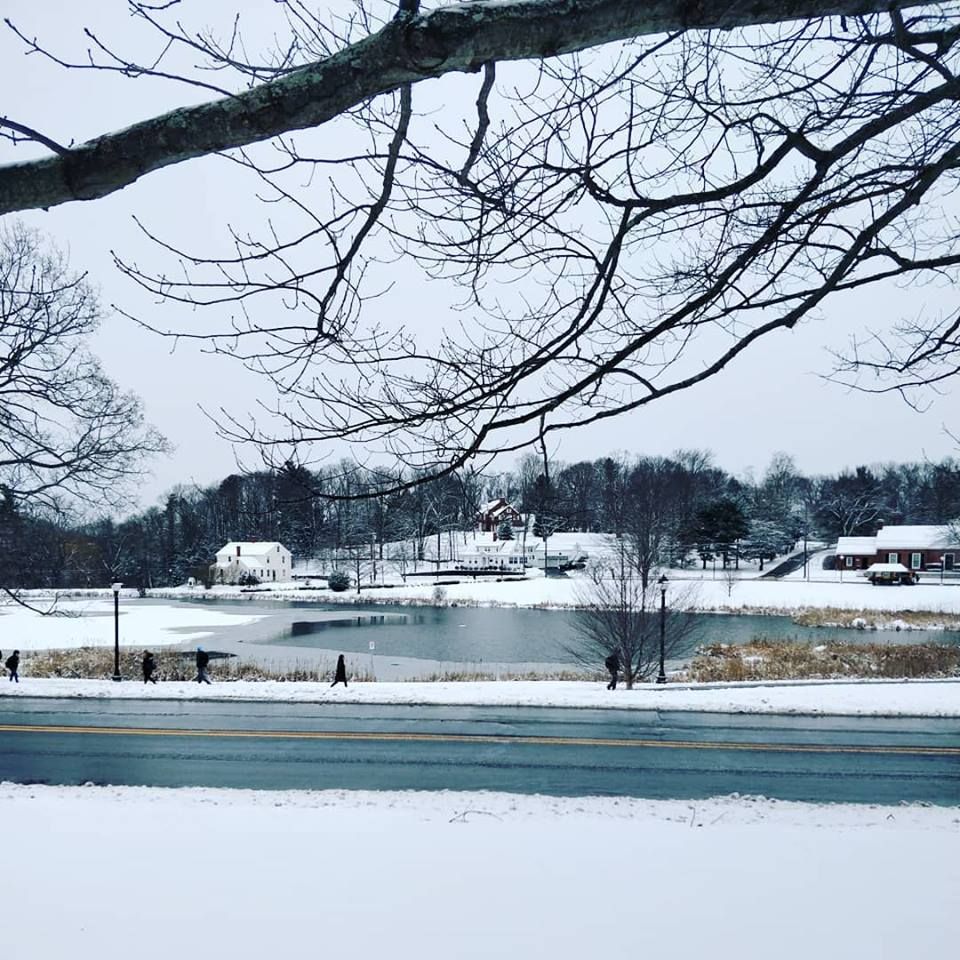
While I was at UConn I also made some friends from Germany and together with another (American/Chinese/Israeli) friend we headed up to Montreal for a weekend. As the only member of the party over 25, I was chosen as the driver of the rental car we took. This meant that my first experience driving on the incorrect side of the road was the six hour drive from Storrs to Quebec, which was only a little terrifying. It turned out to be more than worth it - Quebec is fabulous and has its very own Notre-Dame cathedral in which we saw the most incredible (and surprisingly not sacrilegious) light show.
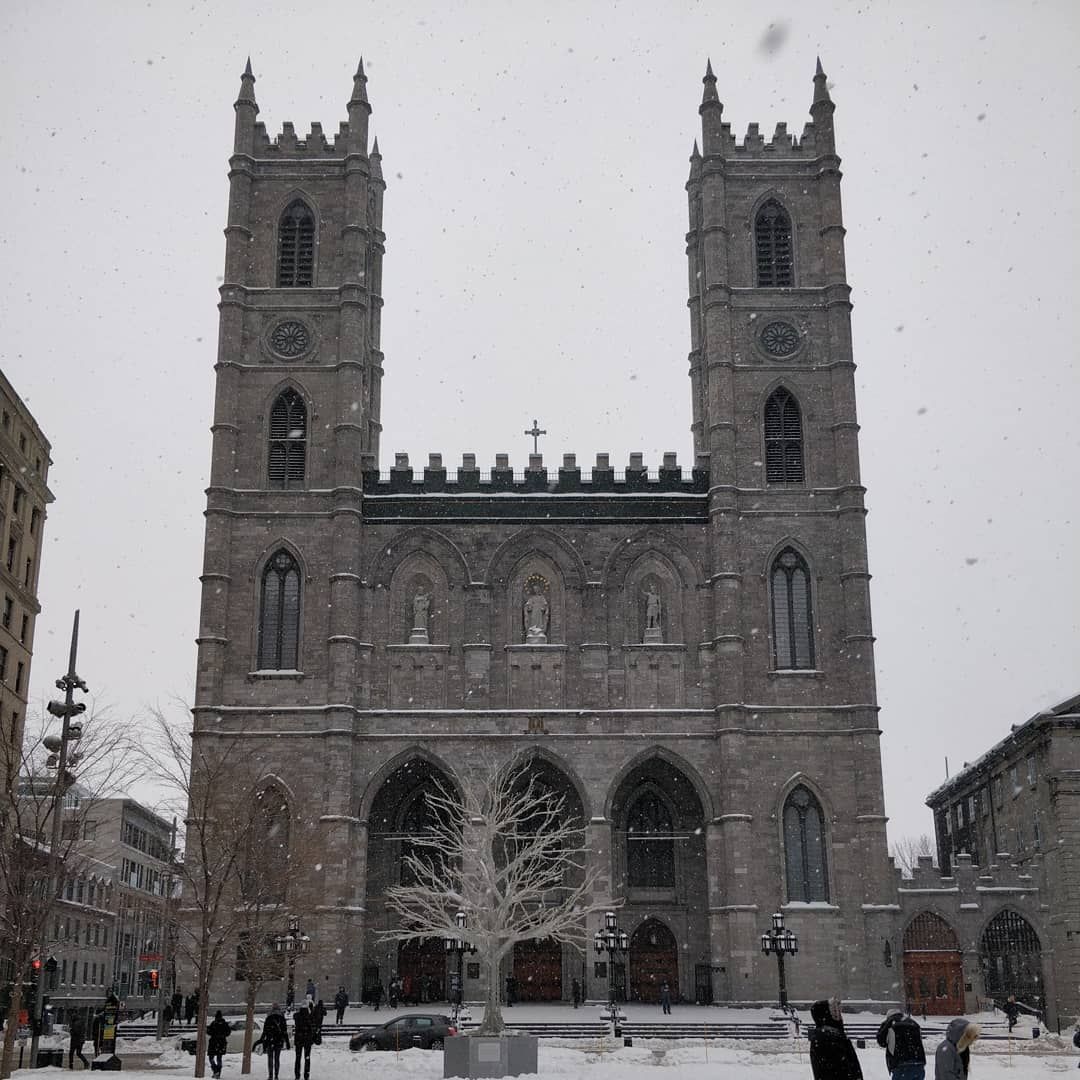
Before long it was back to campus, with less French, but more computer science and lakes. The sheer variety of content (and small class sizes) I was exposed to during semester more than made up for the lack of academic rigour I was used to from my studies in Australia. The beauty of the grounds (rivalling UQ's own) and on-campus ice rink may have helped a little, too.
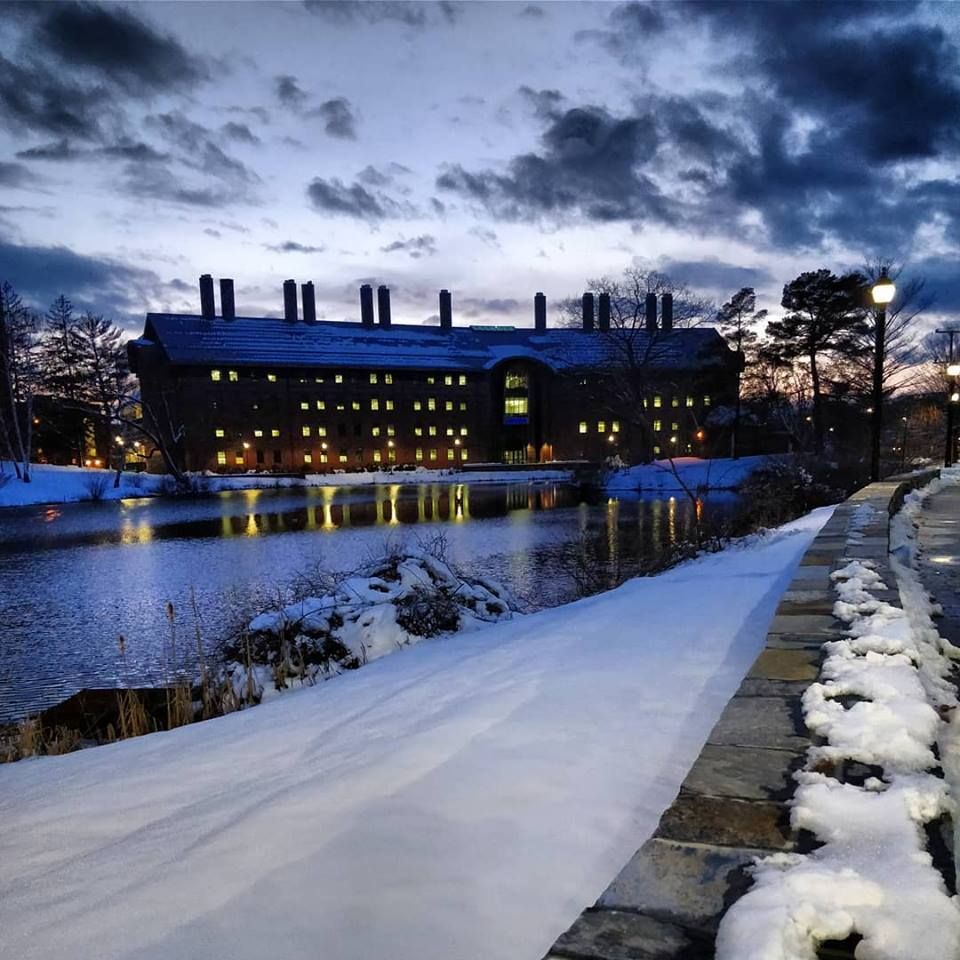
During Spring Break (another American cultural phenomenon I didn't completely understand) my new friend Moritz and I travelled to Washington, D.C. via Philadelphia to try and take in as much "freedom" as possible. We saw a great deal in the week we were there, walking the National Gallery, seeing SCOTUS, the Capitol, the White House, the Smithsonian Air & Space Museum, the Library of Congress, and the Newseum (my personal favourite).

As exams rolled around it was time to start saying goodbye to all of the friends I had made and plan the next leg of my journey, something I hadn't put a whole lot of thought into until that point. My post-UConn American experience was largely a tour of potential graduate schools with detours for the US Python Conference, the Rock on the Range music festival in Columbus and a veritable vegan smorgasbord in Portland.
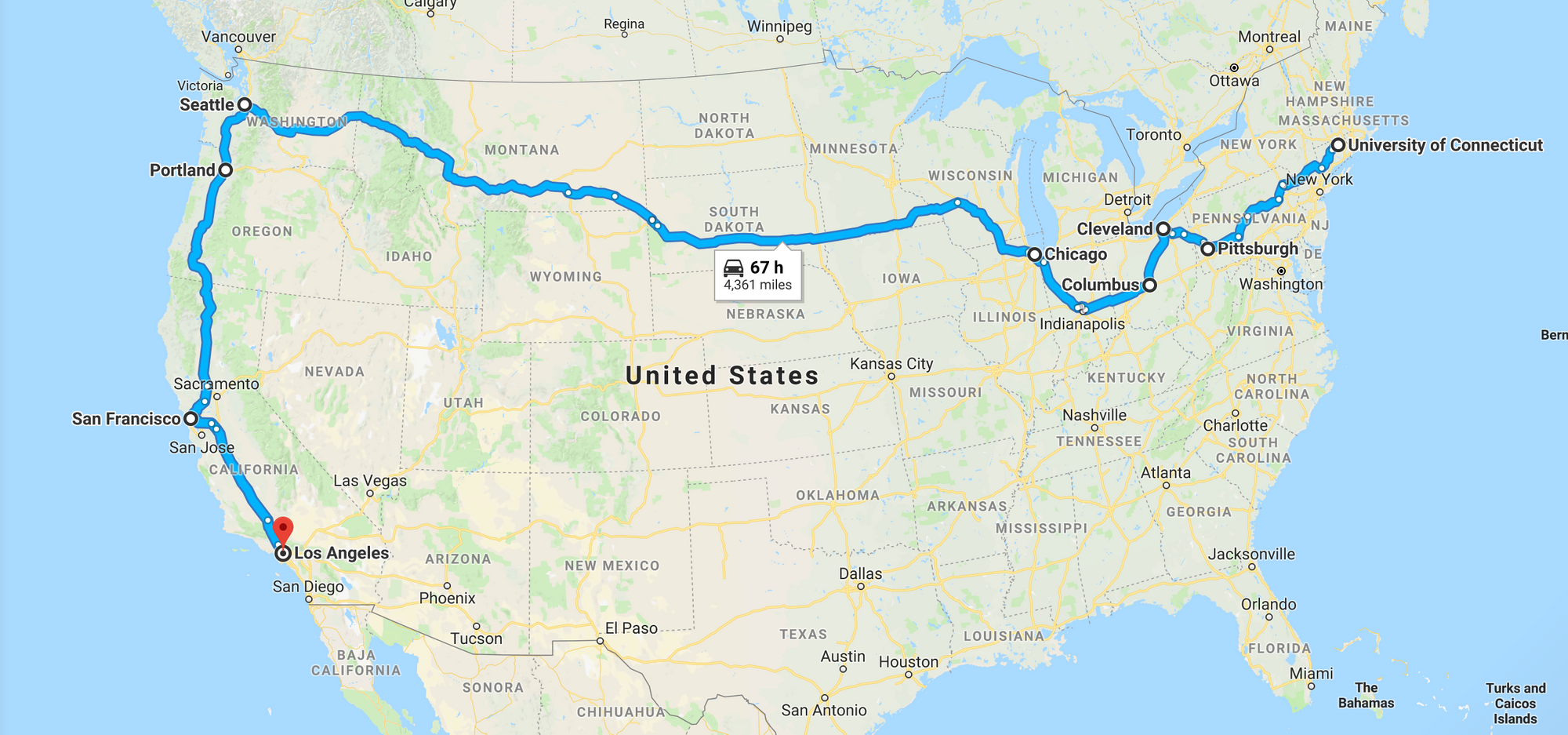
My first stop was Pittsburg, specifically to visit Carnegie Mellon University. Pittsburg (at least the areas that I stayed in and walked through) were quite lovely, though I did get my first taste of the "Rust Belt" neglect (i.e. crumbling infrastructure) there as well.

Next, it was on to Cleveland for PyCon, where Rust Belt Neglect stepped up to the next level. Despite staying only 10 minutes outside the city, I was advised (strongly and repeatedly) not to venture outside my lodgings after dark. A shame, given that walking the streets might have given some insight into why every second house was either foreclosed or condemned. PyCon US is everything I was used to from PyCon AU, just bigger and better. During the conference itself I met Python luminaries including Michael Kennedy, Brian Okken and Kenneth Reitz. I even got to have dinner with Michael, as well as Kevin Markham of dataschool.io, which led to a variety of interesting conversations about building a business around Python.
After the conference it was time for the sprints, where I angled my way straight to Russel Kieth-Magee's Beeware project, the end-goal of which is a truly cross-platform GUI library for Python. Over the course of the 5-day sprints I contributed to one of the Beeware sub-projects known as Batavia (a Python interpreter written in JavaScript), implementing some of the more obscure (read: corner-case) features of the Python built-in functions (like abs, sum and oct). In return for my week of programming, I got not only to work with one of my Python heroes, but also a shiny challenge coin:
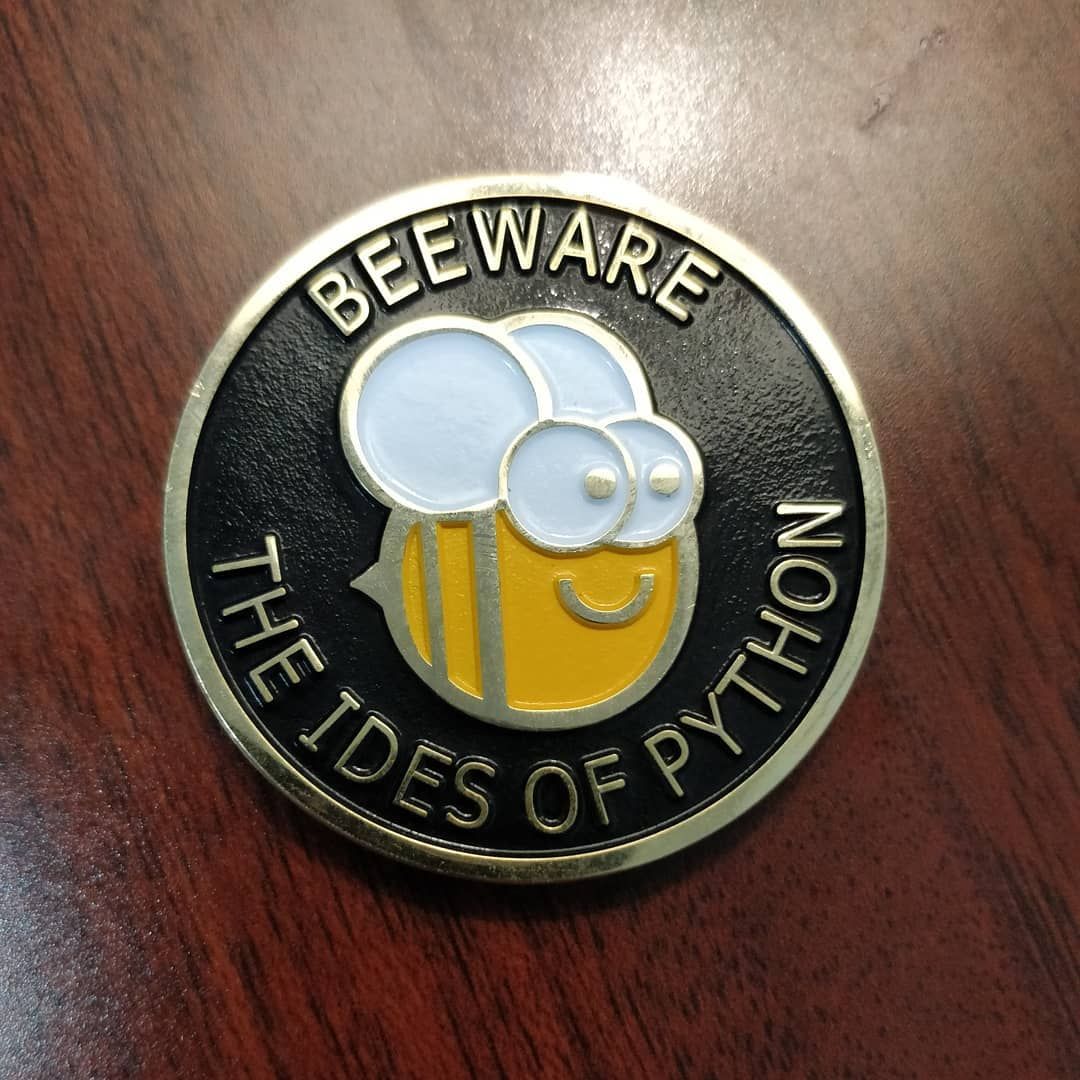
After PyCon, I headed down to Columbus for a music festival (Rock on the Range) featuring some of my favourite bands including Avenged Sevenfold and Bullet for My Valentine. Then it was off to Chicago to see a very pretty university, eat some delicious soul food, see one of my favourite works of art (The Picture of Dorian Gray by Ivan Albright) and finally to board a train to Seattle.
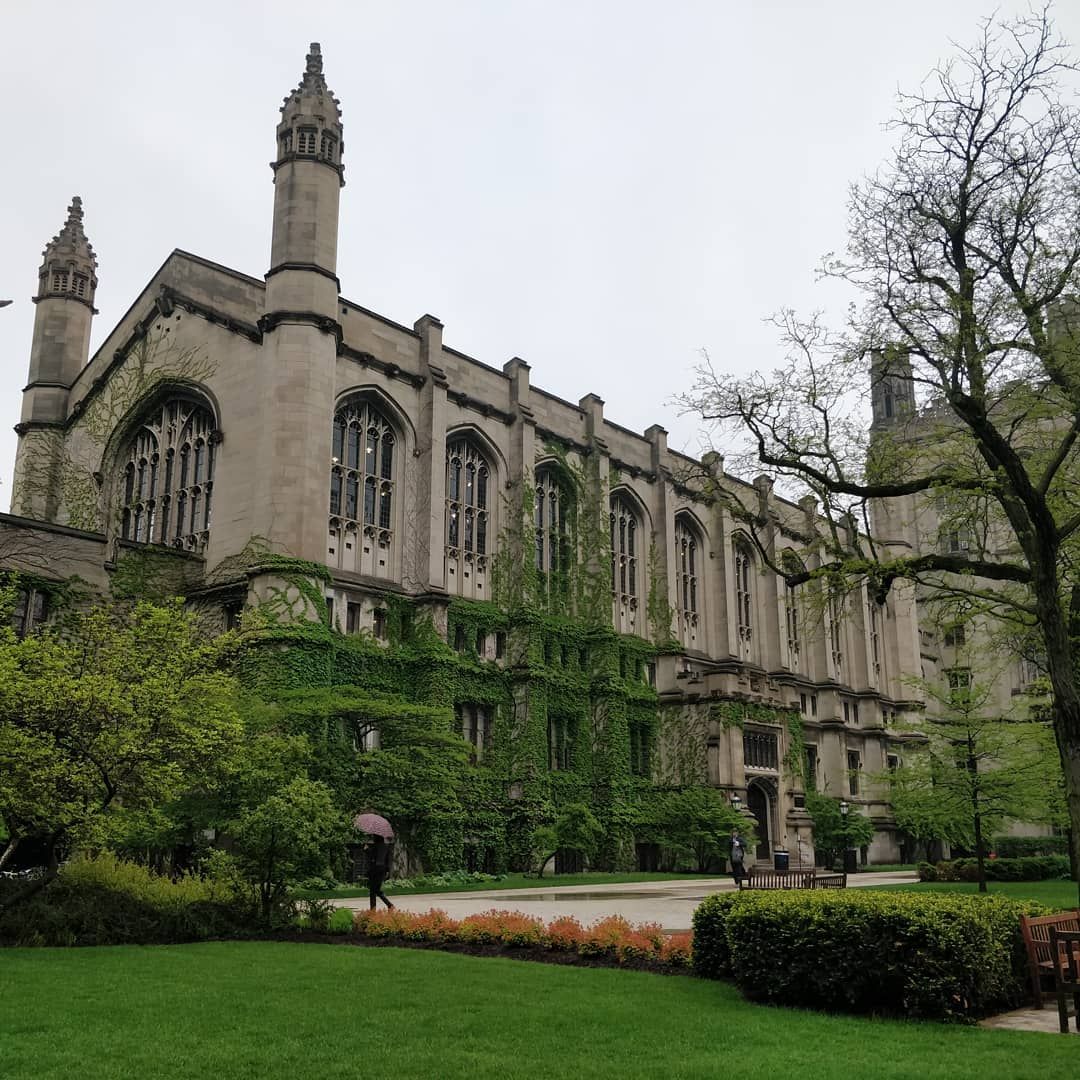
American long-distance trains are worth every penny more than the equivalent Greyhound bus, something I wouldn't fully appreciate until after my 17 hour journey from Portland to San Jose. The trip took me through a half-dozen US states and across the Rocky Mountains - truly a sight to behold. Eventually, after two and a half days, I arrived in Seattle. Here, I saw Jeff Bezos' giant glass balls, drank my weight in London Fogs, and had more incredible American pizza. I also scoped out the lush, green University of Washington campus, another pretty place I could see myself spending 3-5 years at for a PhD.

Portland, my next stop, is a city of such glaring economic disparity that it's quite hard to stomach. It was the first, though far from the last, place I saw luxury cars (Lamborghinis, Range Rovers etc.) driving down a block housing thirty or more homeless people on the sidewalk.
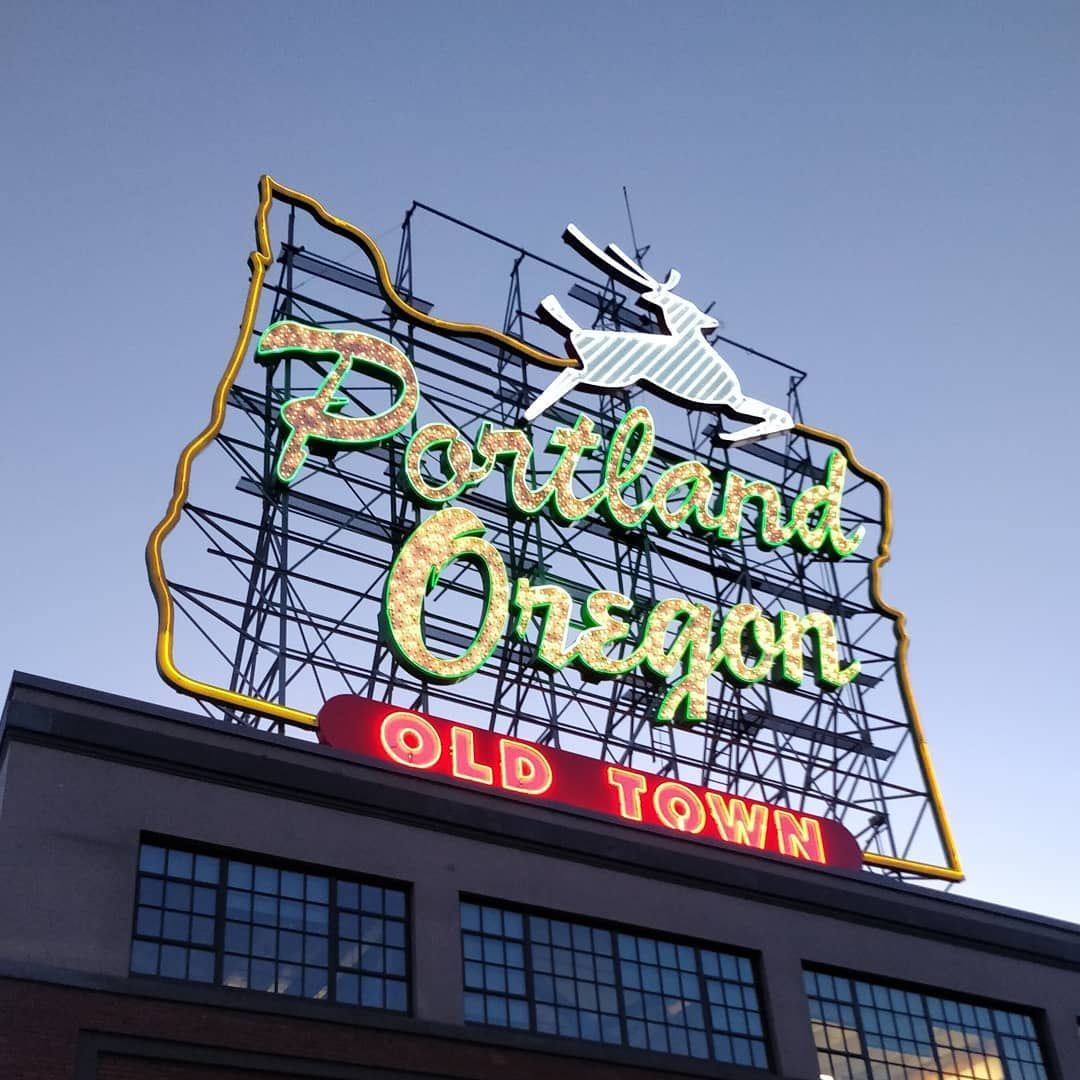
It only got worse as I went farther south. In fact, the rest of my American expedition was rather uneventful. I stayed briefly in Mountain View to check out San Fransisco and the Valley, but was largely underwhelmed by it all (Mountain View itself is really just a big office park nestled in suburbia). Stanford, despite being internationally recognised, didn't seem have the same air of classic intellectualism I'd experienced at Chicago and even UW. I would go on to experience much the same thing at UCLA, though exploring the campuses was quite a pleasant adventure.
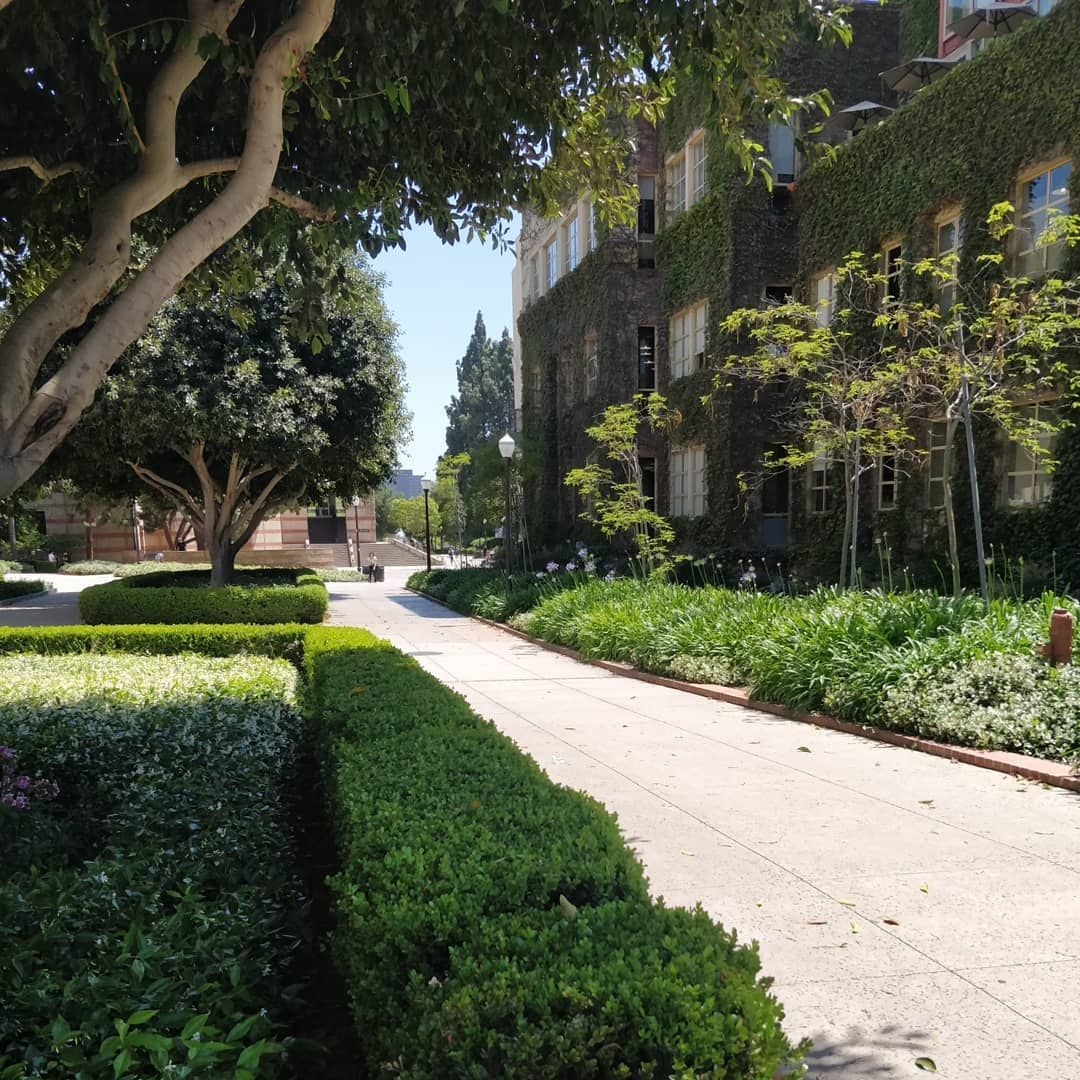
Los Angeles, my last stop before flying home, was similarly disappointing, being smoggy, crowded and appallingly afflicted with the same kind of disparity I'd experienced in Portland and SF. My host in LA, a recruiter for Netflix, explained that what I saw was the result of a policy in central (read: Republican) states to provide one-way bus tickets for homeless people to west coast cities like LA and San Francisco.
This wasn't the greatest note to leave on, given the overwhelmingly rosy picture I'd had prior to my arrival (and even up until my departure from the east coast). What it did give me was a much greater appreciation for the great land I'd come from, and would soon be returning to.
'Straya
Given that I had originally planned to spend the entire year abroad, first in Connecticut, then in Glasgow, why was I returning in June? An opportunity to contribute research at UQ. I'd been brought on as a Winter Scholar to help with the Indigenous Language Robot project and during the five weeks I worked under Dr Gautier Durantin I produced Hermes, software for turning linguistic resources into learning material for the robots.
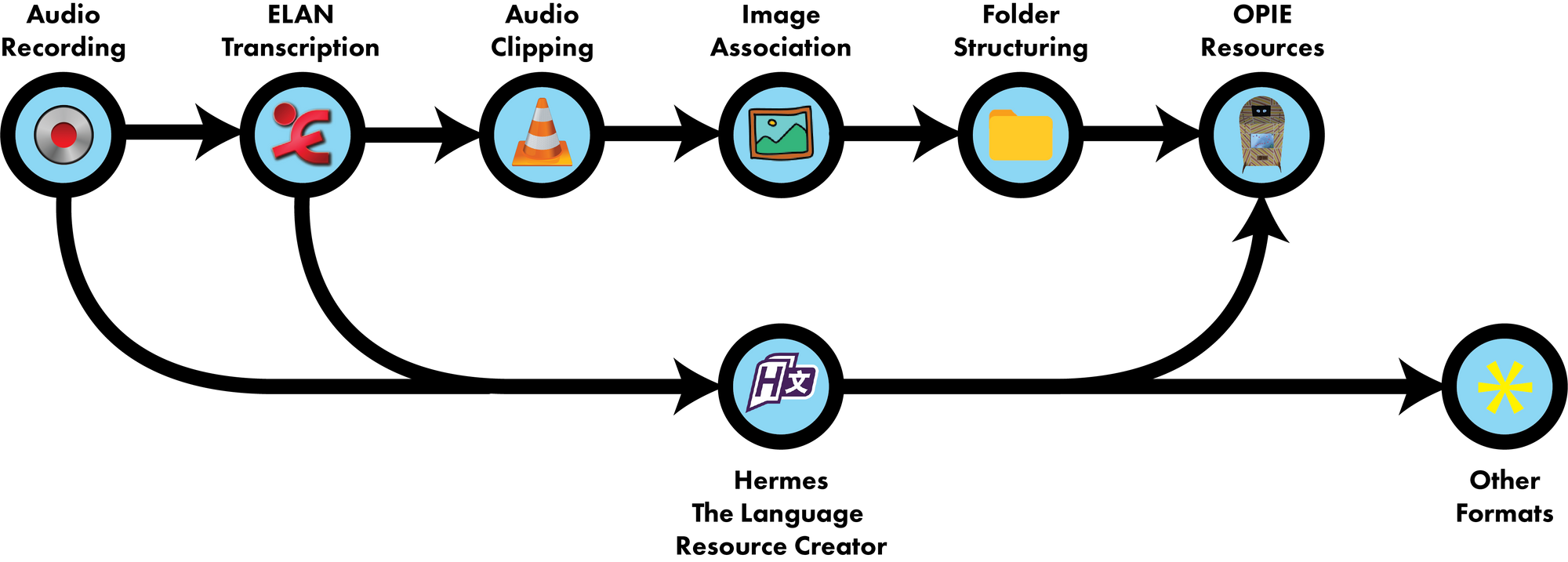

The software was well-received by Dr Durantin and his supervisor, Professor Janet Wiles, and I was ultimately extended an offer to continue work on Hermes and other projects as a Research Assistant in the Complex & Intelligent Systems Group. At nearly the same time, I was offered a tutoring position for one of the introductory engineering subjects in the faculty of Engineering, Architecture and IT. I accepted both and quickly went from being unemployed to overwhelmed, just in time for a new semester at UQ.
As has been my way for as long as I can remember, I (again) bit off more than I could chew, signing up for five subjects in addition to my lab and teaching obligations. As the realities of what I'd signed up for slowly dawned, this was quickly pared down to four subjects, then three, until finally I finished the semester with only two subjects: Data Structures & Algorithms and Professional Practice in the Business Environment. My performance in Data Structures was lacklustre throughout the semester (to put it generously) due to a combination of too many work commitments, diminishing effects of my anti-depressant medication and my tendency to put more focus on the group work involved in Professional Practice. For the first time in nearly eight years of tertiary education (all of which took place post-onset), I had to sit a final exam under special conditions (in this case, later in the day due to the side effects of medication).
Despite my own less-than-stellar academic performance, my lab work (due to its flexible nature) and teaching (due to its scheduling) was largely unaffected. I took great pleasure in supervising 25 first year engineering students through the process of researching, designing and building their very own unpowered UAVs. My lab work was equally fulfilling, as I was moved from working on Hermes (My good friend James took over development) to tackling problems in speech recognition with Ben Foley on the Transcription Acceleration Project (TAP), specifically in KaldiHelpers and Elpis (abstraction layers for the Kaldi ASR system). During my short tenure with the lab I've been lucky enough to travel to the Northern Territory to attend the WANALA conference on indigenous languages, secure a summer research scholarship to continue my work in these areas (practically full-time) over the summer break. I also received a scholarship from the ARC Centre of Excellence for the Dynamics of Language (CoEDL) to attend their summer school at the Australian National University in late November. Both conferences were incredible experiences that fundamentally changed my perspective with regards to my work. In particular, they made me realise that technology is only useful in as far as it empowers people to do the work they do. Technology can't save language, it can only facilitate the people already working to do so.
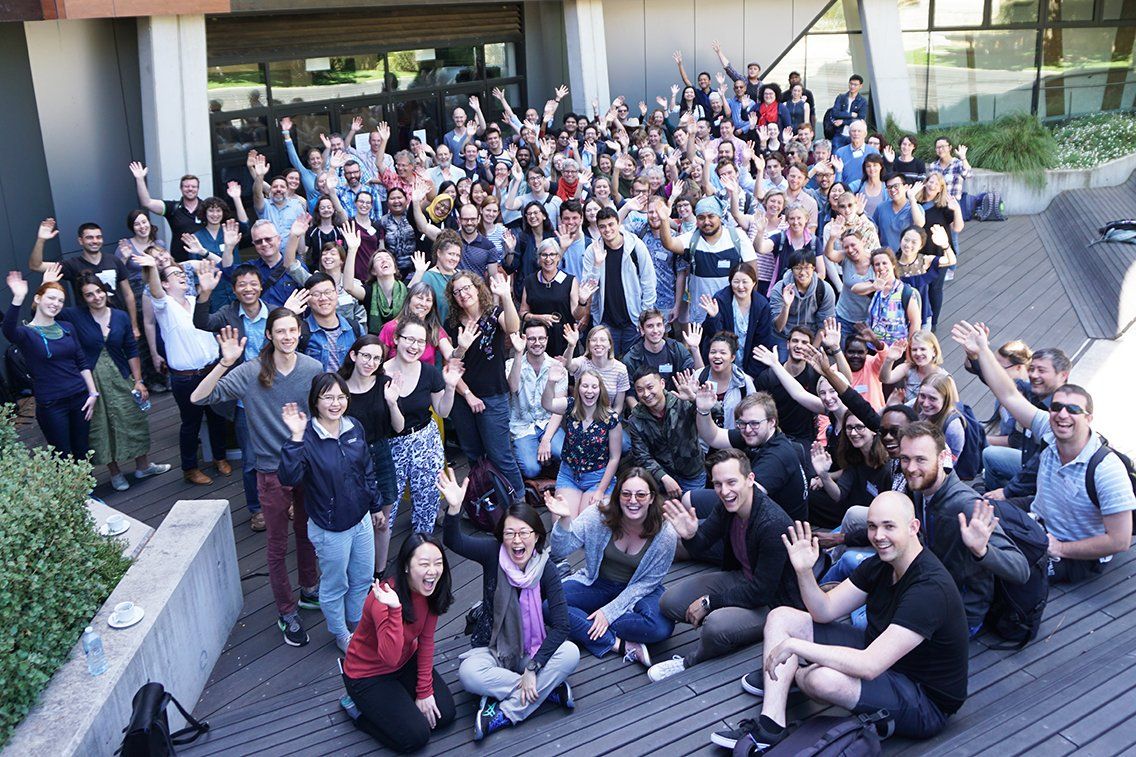
This summer, following on from the CoEDL summer school, I've been working with a talented group of software engineering students (and one similarly talented anthropologist) to develop a web GUI for non-computational linguists to interact with Elpis and Kaldi. The goal was to expose the power of Kaldi to linguists, without requiring them to have a background in computer science. As this project extends into next year, I'll speak more about it in my next summary post, which I hope will come a little sooner than 2020.
